Sometimes, we need to focus on GAINING weight. Whether you’re looking to restore your weight due to restrictive dieting, working to get your period back, or are trying to gain some muscle, weight gain may need to be the focus. But is there a right or wrong way to do that? In this post we’ll go over clean bulking VS dirty bulking and discuss how much emphasis you should put on “eating healthy”.
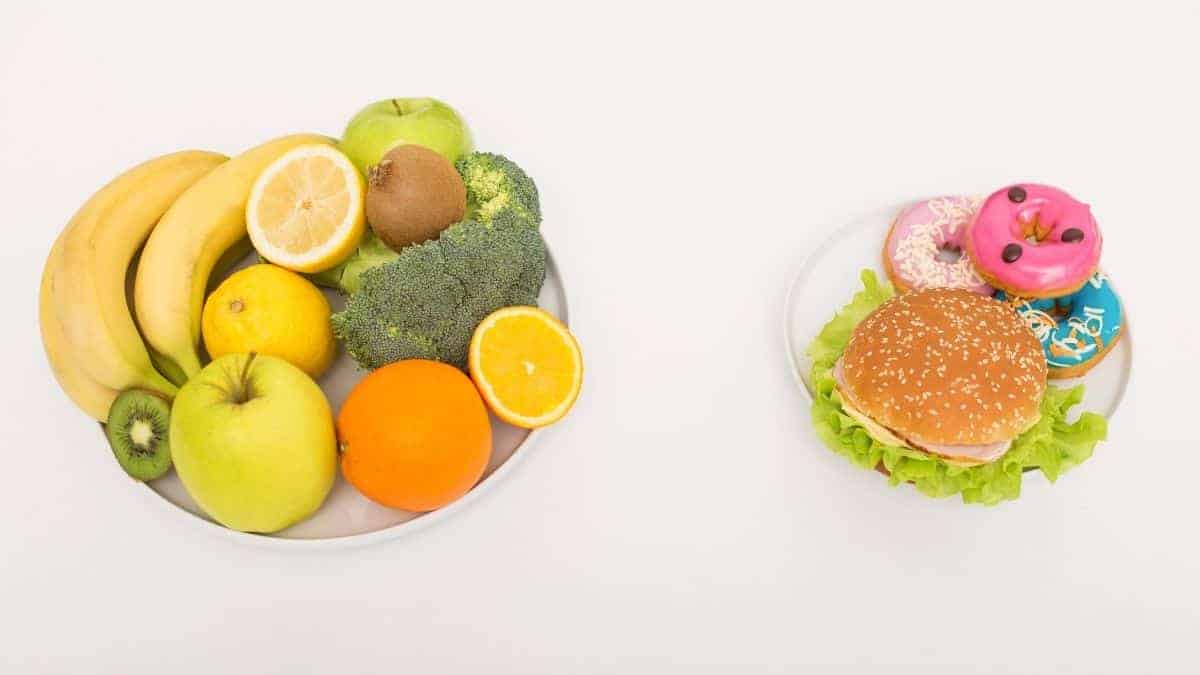
What Is ‘Bulking’?
“Bulking” is a term commonly used by those in the fitness and bodybuilder community that means bulking the body, i.e. gaining weight/mass. Generally speaking, there are two types: Clean and dirty bulking. (We will go over the difference between those in just a second.)
Bulking in any manner, “clean” or “dirty”, is typically characterized by eating in a calorie surplus. In other words; you are consuming more calories than what you are burning. The goal of bulking can range from person to person, but the intent is to gain weight, typically in fat or muscle.
“Bulking” can also be a term used for weight restoration from restrictive eating. If someone is below their set point weight they may be looking to gain weight and try to “bulk”. It can also be used for those who are looking to get their period back (checkout this post for more on how to get your period back and why we lose it!) or regulate hormone imbalances (checkout this post for how to balance hormones naturally) caused by either an overall low weight or from a weight loss occurring.
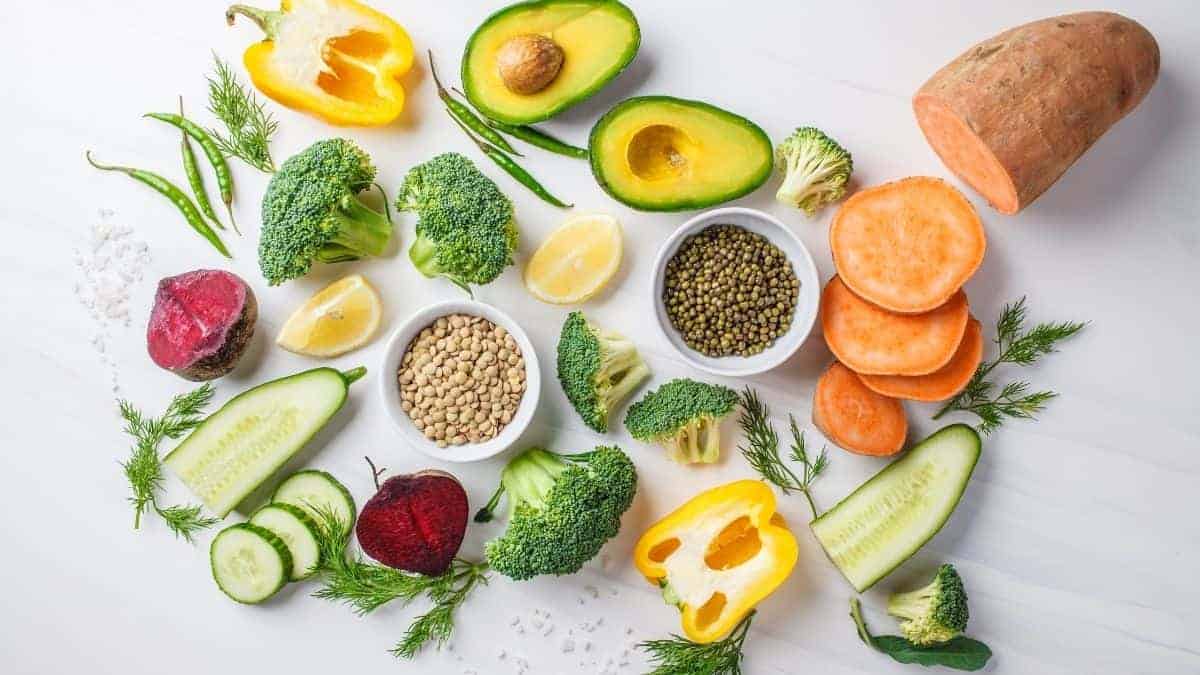
What Is Clean Bulking?
You may have heard the word “clean” before when referring to foods. To be honest with you, there is no definition to “clean eating”. Hate to break it to you, but it’s a made-up diet culture word that demonizes processed or less nutrient dense foods.. ALL foods are actually clean, to be honest. However, in this sense, “clean” usually means not consuming heavily processed foods, or foods high in added sugar, salt, or fat.
There are no official guidelines or how-to’s for clean bulking, it’s open for interpretation by each person, but here are some of the common components:
- Consume mostly “clean” foods, such as lean meats, vegetables, fruits, whole grains
- Calculate maintenance calories, then add 10-20% to gain weight
- Following a tightly regulated calorie surplus
- Avoid added sugar, processed foods, fast foods, added salt and fat
- Daily protein intake should be ~0.7-1 g/lb or even 1-1.5 g/lb, recommendations vary
- Can follow IIFYM, but this is not required
Do some of these sound familiar? It might! Some of the clean bulking components relate to the IIFYM and the Whole Foods Plant-Based diet. Be sure to checkout my reviews on both of those diets if you haven’t.

What Is Dirty Bulking?
Dirty bulking still has the same goal of clean bulking: weight gain. The “rules” are a bit looser compared to clean bulking. This method typically results in faster weight gain since there isn’t as much “control”. Here are a few common components of dirty bulking:
- Eating as much as possible, not adhering to any guidelines
- Emphasis on gaining weight in any way (fat or muscle) and doing it rather quickly
- No requirements for macro distribution
- As many calories as possible
- Emphasis on high-calorie foods, nutrients not necessarily taken into consideration
Again, these can vary depending on the person who is implementing the dirty bulk.
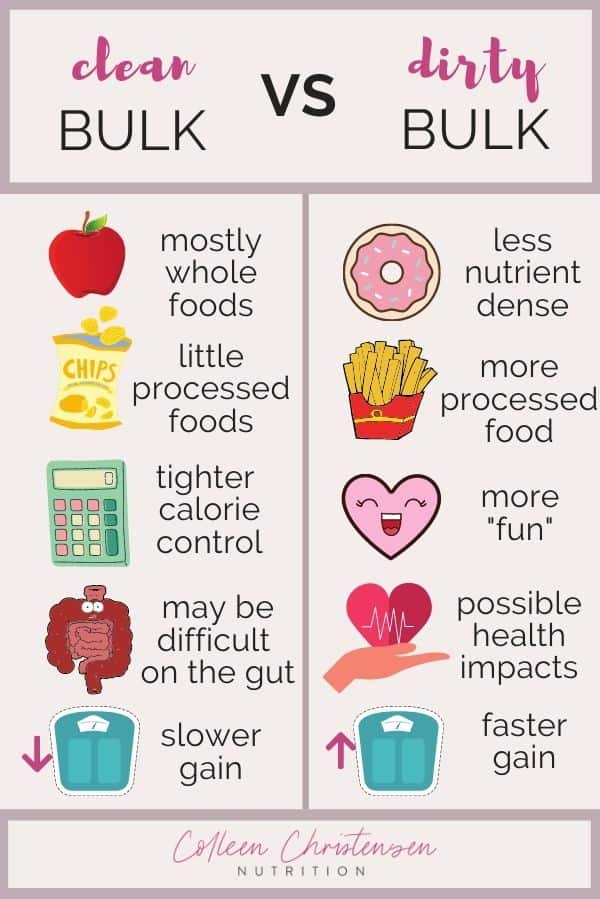
Pros For Clean And Dirty Bulking
Now that we know what each type of bulking is let’s take a look at why someone might pick one over the other.
Pros For Clean Bulking
Clean bulking focuses on the sources of calories and the overall balance of the meals, not just focusing on a caloric surplus. Instead of getting the excess calories from just anything, it emphasizes consuming lean meats, fruits, vegetables, and whole grains. All of these are things our bodies love and it makes the eating style more nutrient dense, similar to the USDA MyPlate recommendations.
A diet including foods like fruits, vegetables, whole grains, and legumes, like what is recommended in clean bulking, has shown to lower the risk for type 2 diabetes and other chronic illnesses. A clean bulking diet would also likely result in an intake of fiber, antioxidants, micronutrients, and healthy fats– all a part of a nourishing diet.
Fruits, vegetables, and legumes are high in phytochemicals, which have an anti-inflammatory effect. We want to avoid inflammation, especially chronic inflammation because it is associated with many types of chronic diseases.
Additionally, with an emphasis on lean meats instead of high consumption of red meat, it ultimately may reduce the risk of type 2 diabetes and potentially some cancers.
To summarize, you are more likely to get a balanced nutritional profile. Consuming a variety of foods that are nutrient-dense will offer vitamins and minerals that have positive health effects.
Pros For Dirty Bulking
There is an inherent attractiveness to dirty bulking. Many people think it is “fun” or “liberating” because it does not require any tracking, planning, or really thinking about nutrition beyond eating more food than normal. Basically, you eat whatever you want, whenever you want it. Think of it almost as prolonged “cheat day”.
This is considered the “easier” and “faster” way of gaining weight, especially with high fat and sugar consumption.
Without the rules, it might be easier to enjoy foods, especially socially with friends and family. Diets with rules and restrictions can be a bit isolating and hard to follow. There can even be some psychological consequences of restricting food.
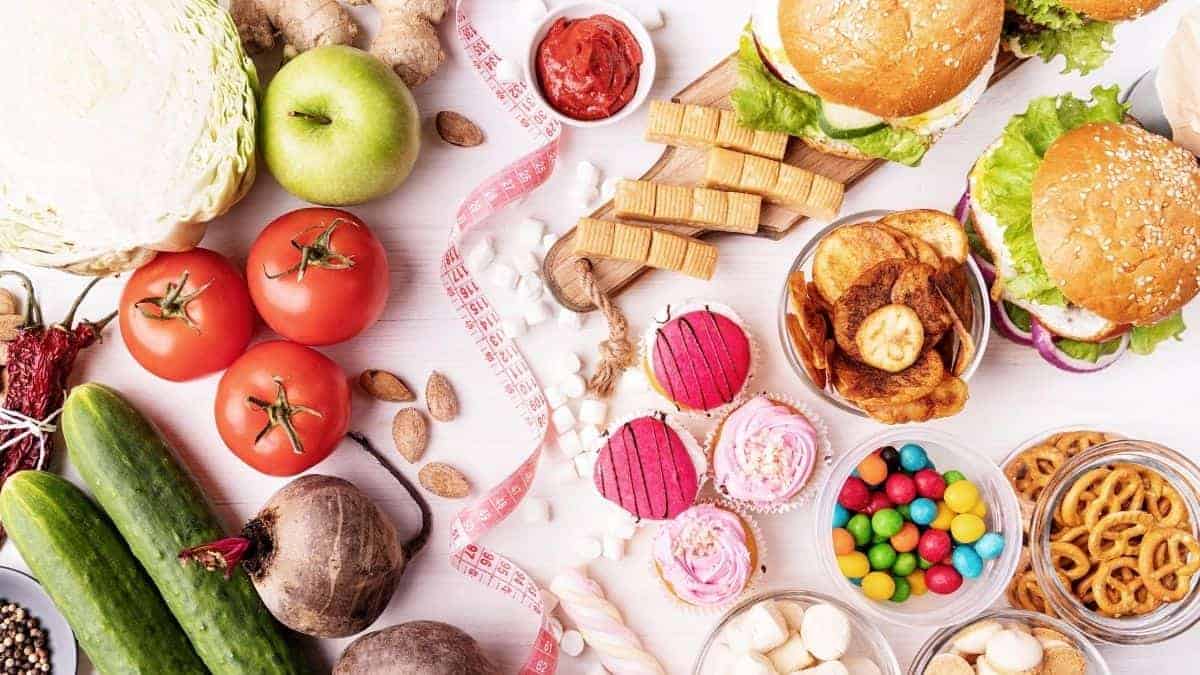
Cons For Clean And Dirty Bulking
Cons For Clean Bulking
With any type of bulking, there is a concern around the fact that a large amount of food may be consumed in a short amount of time. If too much food is consumed too quickly, it could result in gastric distress. This could cause some unpleasant symptoms, such as bloating, constipation, cramping, diarrhea and more.
Clean bulking also tends to be high volume due to the nature of the “whole foods” that are eaten, further contributing to that gastric distress.
Clean bulking can contribute to a high fiber intake. Fiber is an important part of our diet; it helps regulate cholesterol levels and blood sugar levels, helps maintain bowel health, and more.
However, there can be too much of a good thing! With clean bulking, high fiber could cause some issues. Tolerance varies, but symptoms could be excessive bloating, gas, flatulence, constipation, and more. You can learn more about what happens when we get too much fiber in this blog post!
With the constant tracking of calories or macros that many clean bulking plans require, it can become easy to fixate and obsess over our diet, potentially leading to some restriction or cutting out food groups. Studies have shown that when we restrict certain foods (in this case those that we may have deemed “dirty”) we typically end up bingeing or compulsively eating these foods. Diets that tend to label foods as “good” or “bad”, or cut out food groups can tend to have a similar effect.
Plus, the act of nonstop tracking our food can be tiresome and downright unhealthy. Also, if weight gain is the goal, it can likely take longer to gain weight if you’re trying to be “careful” with what you eat and you ultimately may not be able to meet the increased calorie needs if you’re focusing on eating too “clean”, since many “clean” foods are lower in calories.
Lastly, we can never know the EXACT amount of calories we are needing each day. I talk about this more in my blog post on how to stop counting calories. But, essentially, your bodies are smart and if we listen to them they will self-regulate our intake. Shooting for a specific number can likely lead to the restrict-binge cycle due to over and under eating.
Cons For Dirty Bulking
Since there are no guidelines, and it sometimes promotes the intake of food high in added sugar, fat, salt, and processed foods, it could have some negative health effects. This can depend on the volume, frequency, and period of time you are following the diet and what you are consuming.
Now, we know that nutrition DOES matter for our health, there is no denying that. Studies do show that consuming a diet of mainly “ultra-processed” foods (defined as “multi-ingredient industrial formulations and include sugar-sweetened beverages (SSBs), packaged bread, cookies, savory snacks, candy, ice cream, breakfast cereal, and pre-prepared frozen meals.”) can lead to increased total cholesterol, increased LDL cholesterol, risk of high blood pressure, and other metabolic syndromes. And, take note, I don’t mean that processed food is included in your diet (I eat those foods, too!)- I mean it’s PREDOMINANTLY your diet.
I almost feel like “dirty bulking” is similar to the rebelling against diet culture phase that is commonly seen in those who are working to stop dieting and learn intuitive eating. I have an entire post about what to expect when you stop dieting but essentially you gravitate towards those previously “forbidden” foods a lot at the beginning due to the previous restriction of them.
My guess for dirty bulking is that it would initially be “fun” but if you’re truly listening to your body it might not feel great long term. It’s crazy to think, I know, but I bet your body would actually CRAVE a veggie! It happens all of the time in The SociEATy!
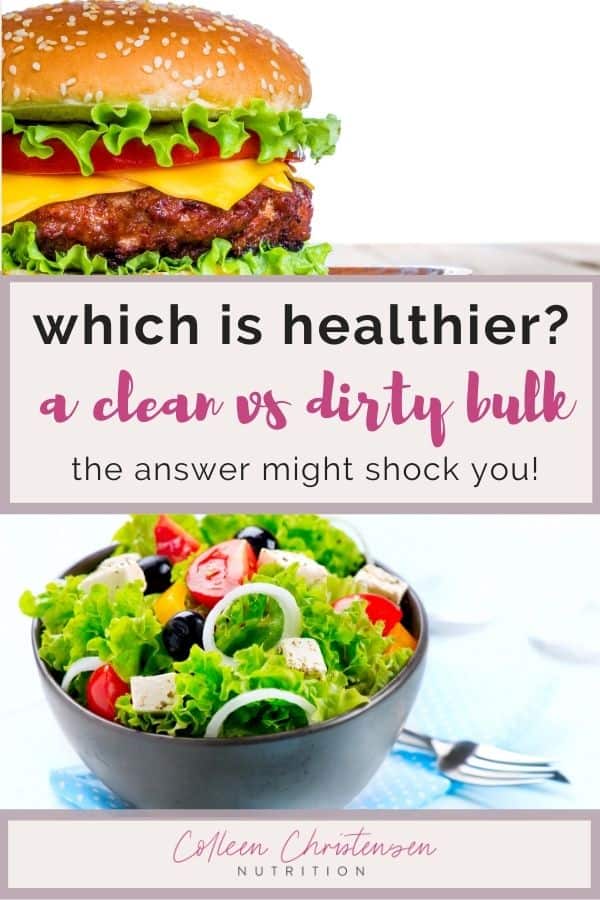
Verdict: Clean Bulking VS Dirty Bulking
This might not be the sexy answer you’re looking for, but the answer is neither. I do support eating fruits and vegetables and a well-rounded diet, I am a registered dietitian after all! However, too much of a good thing CAN be too much of a good thing.
Like I mentioned, trying to eat too “healthy” may not only impact your digestion in a negative way, but it may also keep you from getting enough calories in your day to actually allow for weight gain if that is what your body is needing.
Also, restricting our food and practicing “control” over our eating could possibly cause more harm, disordered eating, or even eating disorders. I know it starts off innocently and you may not think it could happen to you, but it can so easily spiral out of control.
My advice? Focus on listening to your body, use some gentle nutrition, and enjoy ALL food! Go grab yourself a McFlurry that maybe you’d normally feel is too “unhealthy” (all food is healthy, BTW.) And enjoy it!
But just because you do that doesn’t mean that you have to do that all day long, every day. Sure, you can, but I’d say take note of how your body FEELS. Let that be your guide to find that mystical word we hear so much about “balance”!
Struggling to find balance and food freedom? Be sure to snag my free e-book The Ultimate 5 Step Guide To Food Freedom!
Leave a comment with your thoughts on clean bulking VS dirty bulking and share any experiences you have!
XOXO
-Colleen
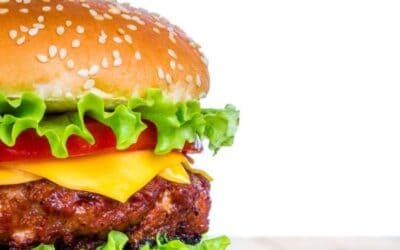
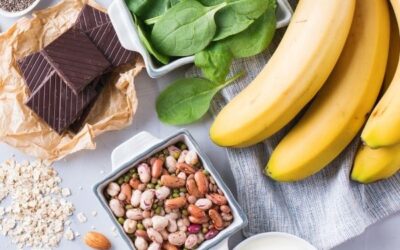
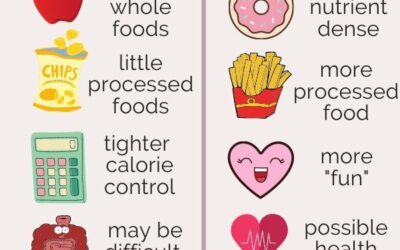
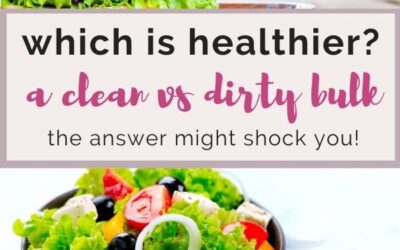



Leave a Reply